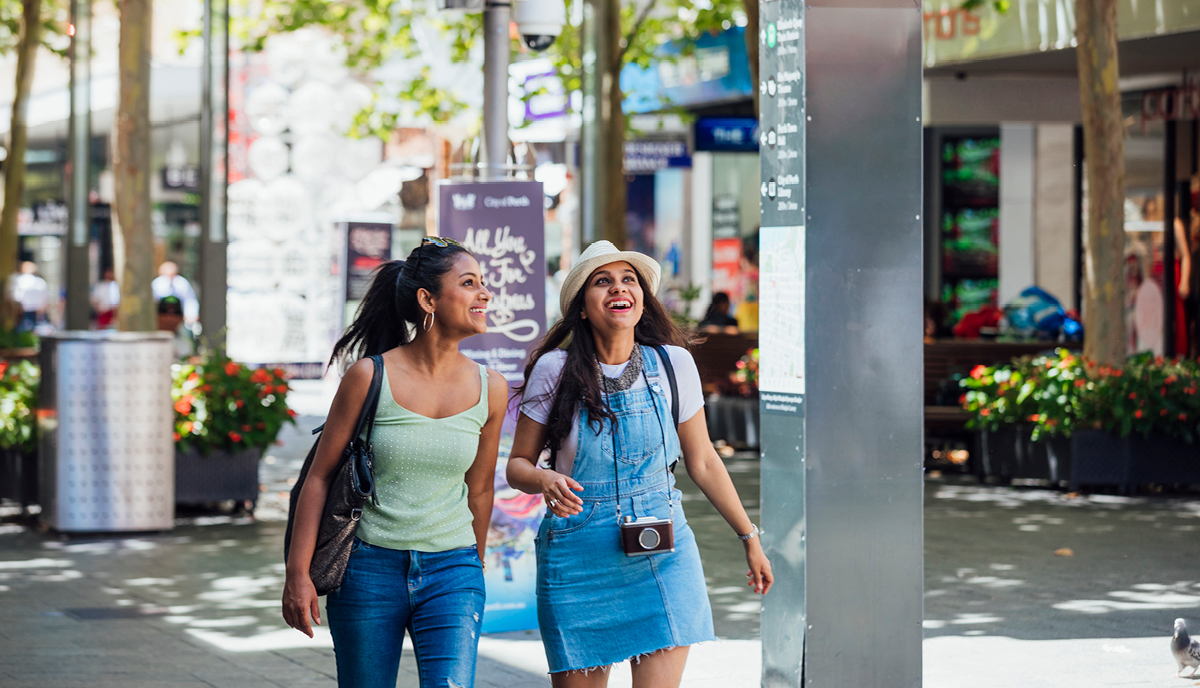Alongside COVID, the topic of sustainability is dominating the media - with the retail sector firmly in the spotlight.
Where is this coming from? According to recent global research undertaken by Mastercard, many retailers have experienced a significant shift in customer preferences and expectations around sustainability since COVID-19, with 57 per cent of Australians more mindful of their own impact on the environment.
Consumers, especially Millennials and Gen Z, also have high expectations around how brands conduct themselves, with 61 per cent believing brands should behave in more eco-friendly and sustainable ways.
Consumer concerns around sustainability are not only limited to materials and packaging, but to the retailer’s approach across the entire supply chain and business operations.
In response to this consumer-driven demand, we examine if sustainability and profitability in retail are compatible in today’s economic environment.
Sustainability sells
It is becoming increasingly evident that the benefits of sustainability are not at odds with financial benefits.
Sustainable products have been a growth driver in the past. Global research conducted by the Economist Intelligence Unit (EIU) and commissioned by the World Wildlife Fund (WWF) demonstrate a 71 per cent rise in popularity of searches for sustainable goods over the past five years in high-income countries such as the United States, United Kingdom, Germany, Australia and Canada, with continuing growth during the COVID-19 pandemic.
Customers are more willing to pay a premium for eco-friendly products. One Australian example is Zero Co. In late 2020, the company started delivering environmentally friendly cleaning products packaged in reusable containers made from recycled waste; and in their first year of activity alone they’re forecasting $10m of sales.
Patagonia and the Body Shop have long set the standard on environmental action, but there are also a number of younger organisations focusing on sustainability in the consumer sector with brands like Allbirds promoting the use of natural fibres over synthetic versions as well as minimal use of packaging, 90 per cent of which is post-consumer recycled cardboard.
During the early stages of the pandemic, many countries were quick to publicly commit to a ‘green recovery’, addressing social and economic impacts through their national stimulus packages. A wide range of other stakeholders, from institutions to the private sector, also called on governments to implement a green recovery. The OECD has likewise been a key voice advocating for a strong sustainable inclusive and resilient recovery, with evidence indicating that money invested in green stimulus seems to result in a better return on investment.
The setup of ’green funds’ and the volume of funds committed to sustainable investment strategies will continue to strengthen. We are seeing new sustainability-linked loans such as the recent $495m facility with CBA for the ISPT Retail Australia Property Trust (ISPT becomes Australia’s largest sustainability-linked loan issuer with CBA support (commbank.com.au)).
Circular economy - the key to realise change
Over the past decade a number of retailers have decided to switch their business model from ‘Take-Make-Waste’ to a circular economy approach based on the 5R principles (Rethink-Reduce-Reuse-Repair-Recycle), boosting their green credentials and turning a profit in the process.
Implementing the principles of the circular economy is key to realising this change. The following actions should be considered by retailers:
- Integrate sustainability goals into the core of the business strategy. Sustainability goals require organisations to reconsider operations in their entirety, from sourcing to inventory management and packaging. Integrating sustainability into the strategic heart of an organisation is a long-term endeavour - it needs to be carefully and tactically planned. Buy-in from senior leadership is essential throughout the entire process.
- Listen to your customers. The circular economy takes the relationship between a brand and its customers a step further than the direct-to-consumer model: it forces businesses to identify a customer problem and involve its customers to define it. The Australian company Conscious Koala is a great example of listening to your customer needs and creating solutions to meet them. The problem it solves is one felt by every new parent: your child is not even six months old and already has outgrown two rounds of clothing sizes. Conscious Koala works on a subscription model: for a monthly fee, parents exchange clothes when they are outgrown, avoiding unnecessary cost and waste (Conscious Koala sustainable baby clothing rental).
- Implement targets and monitor progress. Customers expect that sustainability claims are backed up by data. There are currently over 500 formal and informal sustainability frameworks globally, which understandably creates confusion. Adopting industry standard objectives like the UN’s Sustainable Development Goals and certifications such as B Corp can provide a formal framework to track progress.
The financial world is rapidly embracing Environmental, Social and Governance (ESG) reporting. Failing to place sustainability at the heart of decision-making leaves retailers vulnerable to losing a competitive advantage. For organisations that would like to learn more, BDO’s ESG reporting tool allows organisations to select the sustainability framework most applicable to their business.
If you would like to discuss ESG and financial reporting in your retail business, please contact our National Retail team.
